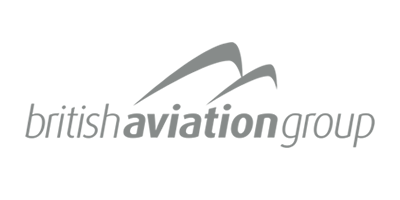There are many challenges facing all airports in Europe and the United Kingdom when it comes to baggage systems. One of the biggest is the implementation and compliance to EU Regulation No. 1087/2011 which require all airports at EU member states and other countries, to be compliant to Standard 3 level of Hold Baggage Screening.
Standard 1 regulation were introduced following the Lockerbie disaster in 1988, where a plane was destroyed by an explosive device. Following the September 11 attacks regulations were upgraded to Standard 2. Now Standard 3 machines have been developed to look for the new generation of threats.
This new regulation applies to hold baggage screening systems (HBS) explosive detection systems (EDS), liquid explosive detection systems (LEDS) and security scanners and should not be confused with the 1 - 3 inspection levels. Standard 3 is a framework defined by the European Civil Aviation Conference (ECAC) that sets the minimum required levels of detection.
In Europe the deadline for compliance is September 2020, when Standard 2 systems must have been replaced, and September 2018 for all United Kingdom airports.
There are 4 main challenges for the airport operators during this changeover:
- Costs - Standard 3 technology is significantly more expensive to buy and maintain.
- Baggage Throughput – Standard 3 machines have shown lower throughput capabilities than the Standard 1 and 2 systems they replace.
- Integration - To maximise the capabilities of Standard 3 machines must be successfully integrated and interfaced with the baggage system.
- Disruption - Minimise impact on current baggage infrastructure and airline processes.
Many airports may not have the specialist experience to carry out the successful implementation of Standard 3 solutions. Some airports, having only recently upgraded to the Standard 2 machines, may find upgrading to the more expensive, sophisticated and in some cases larger machines, is not only costly but challenging when it comes to maintaining the operation.
Here are some considerations that should be made before, during and after the upgrade to Standard 3:
- The selection of the correct Standard 3 machine supplier/s is fundamental to any airport successfully deploying the technology and should consider multiple criteria;
- Selecting the correct technology. Hold Baggage Standard 3 machines sit in two fields;
- Rotating gantry, mature technology being used in many airports since the late 90s
- Solid state, a new solution developed over the last 5-7 years especially for baggage screening
- Matching the machine to the specific airport requirements; for example is there a separate OOG facility or not?
- Optimising Standard 3 implementation into the current baggage system; we know the machines can be physically bigger and heavier, but what may not have been considered is that for example, bag presentation and environmental tolerance is more critical with this upgrade.
- Maintaining or bettering current screening performance criteria.
- Minimising operational impacts on the baggage system and all users.
- Selecting the correct technology. Hold Baggage Standard 3 machines sit in two fields;
- When developing new baggage system designs, it is vital for the airports to optimise and maximise the system throughput capability, considering current requirements and future expansion.
- Benchmarking existing baggage systems to understand the current limitation of the baggage system. This will help to develop and implement the correct solutions.
- Produce project briefing and technical specifications for new and existing systems.
- Manage the process and expectation when testing commissioning and handing over new baggage systems.
- Selection of the new technologies and associated equipment changes will require careful evaluation and implementation. The recent history of baggage system failures around the globe is littered with the poor selection and deployment of the new technologies.
For more information and how we can help with Standard 3 upgrades, contact us at info@chsservices.com or +44 (0) 1245 496281.




